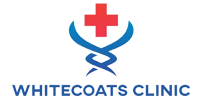Finding the Right Blood Pressure Doctor in Gurgaon
If you’re in Gurgaon and seeking specialized care for blood pressure management, choosing the right doctor is crucial for your health and well-being. Whether you’re dealing with hypertension or other related issues, Gurgaon offers a range of highly qualified doctors who can provide personalized treatment plans tailored to your needs. Let’s explore what makes a good blood pressure doctor.
● Understanding Blood Pressure: Types and Influencing Factors
Blood pressure varies widely among individuals and can be influenced by several factors. It’s important to understand the types of BP and what causes them to effectively manage cardiovascular health:
Types of Blood Pressure:
- High BP (Hypertension):
- Primary Hypertension: Develops gradually over years; causes include genetics and lifestyle factors.
- Secondary Hypertension: Caused by underlying conditions or medications like kidney disease or certain drugs.
- Low BP (Hypotension):
- Orthostatic Hypotension: Occurs upon standing; common in older adults.
- Neurally Mediated Hypotension: Causes sudden drops due to triggers like stress or prolonged standing.
Factors Influencing High Blood Pressure:
- Lifestyle Choices: Diet high in salt, lack of exercise, excessive alcohol or tobacco use.
- Medical Conditions: Obesity, diabetes, kidney disease, and genetic predispositions.
- Age: BP tends to rise with age due to arterial stiffness.
Factors Influencing Low Blood Pressure:
- Dehydration, heart conditions, endocrine disorders, severe infections, and medications.
Top Blood Pressure Doctors in Gurgaon
Gurgaon boasts several highly regarded doctors specializing in hypertension and cardiovascular health. Here are some top experts you might consider:
- Abhishek Singla – HomeDoc
- Known for compassionate care and preventive strategies.
- Offers patient-centric treatment plans at HomeDoc, focusing on holistic health approaches.
- R. K. Jaswal – Medanta – The Medicity
- Renowned cardiologist specializing in complex cardiovascular conditions.
- Offers expertise in hypertension management at Medanta – The Medicity.
- Ritu Garg – Artemis Hospital
- Experienced internal medicine specialist with a thorough approach to patient care.
- Creates personalized treatment plans at Artemis Hospital tailored to individual needs.
- Ajay Aggarwal – Fortis Memorial Research Institute (FMRI)
- Prominent in interventional cardiology and advanced diagnostic techniques.
- Specializes in hypertension treatment at FMRI, Gurgaon.
- Ashok Seth – Max Hospital
- Distinguished for pioneering advancements in interventional cardiology.
- Chairman of Cardiology at Max Hospital, offering extensive expertise in hypertension management.
Choosing the Right Doctor for You
When selecting a blood pressure doctor in Gurgaon, consider factors such as specialization, experience, patient reviews, and hospital affiliations. It’s essential to feel comfortable and confident in your doctor’s ability to manage your health effectively.
Tips for Managing BP in Gurgaon
- Healthy Diet: Focus on fruits, vegetables, whole grains; reduce salt and processed foods.
- Regular Exercise: Aim for 30 minutes of moderate activity most days.
- Stress Management: Practice yoga, meditation, or deep breathing exercises.
- Routine Check-Ups: Regular visits to monitor BP and adjust tretments.
- Medication Adherence: Follow prescribed medications precisely as directed.
Conclusion
Managing blood pressure in Gurgaon requires proactive lifestyle changes and expert medical guidance. Understanding the types and influencing factors of BP, and selecting a qualified doctor, empowers you to control your cardiovascular health. Since treatment responses vary, personalized care is crucial.
Gurgaon offers access to specialized healthcare professionals and resources. Explore local clinics, hospitals, and community programs focused on heart health. Engage with support groups and online communities for additional insights.
By prioritizing your health and implementing these strategies, you can achieve well-managed blood pressure. Take the first step today toward a healthier future in Gurgaon.



